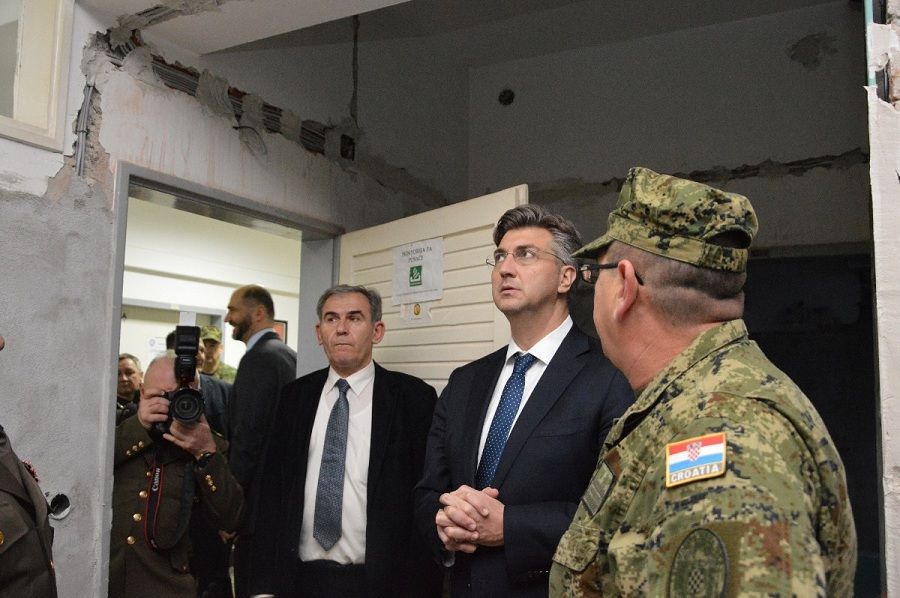In the last 15 years, Croatian Armed Forces fell from 43,000 to 17,000 members.
Next year, for the first time after six years of steady decline, Croatian defence budget will rise in real terms. While it is still not sure precisely how much the military will get, during the session of the government on Thursday it was announced that defence budget’s share in GDP would reach 1.23 percent, which would mean that the budget for 2017 would amount to somewhere between 4.3 and 4.4 billion kuna, reports Večernji List on November 28, 2016.
That would be substantially higher than in 2016, when the defence budget amounted to 4.022 billion kuna. This year’s defence budget was the lowest in history – just 1.17 percent of GDP.
Defence Minister Damir Krstičević has been very persistent in his demands for the budget to be increased, which was demonstrated last Thursday when he brought Prime Minister Andrej Plenković, members of the Parliamentary Committee on Defence and journalists to the Croatia military barracks in Zagreb. While politicians are usually shown the best parts of military infrastructure, this time the Prime Minister was shown the most dilapidated buildings and facilities in the barracks, and not those few buildings which were renovated during the short time when the barracks stood for headquarters of the Defence Ministry.

The fact is that budget expenditures for the military have been falling for 15 years. The new minister and his team intend to restore dignity and motivation for members of the army. The defence budget was often used as a kind of reserve fund for the government, to be pillaged when some other sector finds itself without enough funds. For example, there is a well-known case when, during the term of Defence Minister Branko Vukelić, the defence budget of 5.3 billion kuna was reduced overnight by as much as 1.3 billion kuna.
In other instance, former Defence Minister Ante Kotromanović managed to save a couple hundred million kuna which he wanted to divert to modernization efforts, but then Finance Minister Slavko Linić took the savings and redirected them to healthcare system, which was a cause for dramatic showdown between the two of them.
In addition, while it is not widely known, the army is the only part of the public sector which has substantially reduced the number of employees. In fact, in the last 15 years, it lost about 60 percent of employees, declining from 43,000 to 17,000 members.


